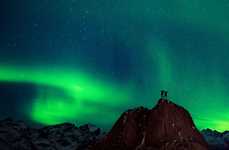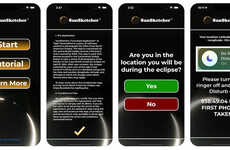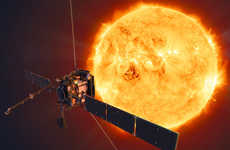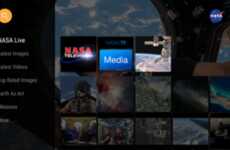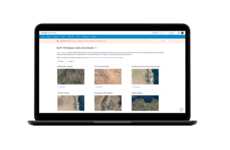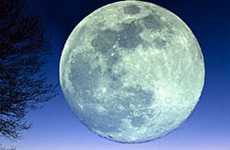
NASA TV & Exploratorium Coverage
Bianca — August 1, 2008 — Pop Culture
References: nasa.gov & business-standard
This morning, August 1, a total solar eclipse caused people from around the world to gather in front of their computers to watch NASA TV who broadcast the event from 6 to 8:15 a.m. EST.
Nasa TV streamed the phenomenon live from China, but the total solar eclipse was also visible for people in some parts of Canada as well as northern Greenland, the Arctic, central Russia and Mongolia.
Nasa partnered with San Francisco's Exploratorium Science Centre and the University of California at Berkeley to stream the webcast.
Nasa TV streamed the phenomenon live from China, but the total solar eclipse was also visible for people in some parts of Canada as well as northern Greenland, the Arctic, central Russia and Mongolia.
Nasa partnered with San Francisco's Exploratorium Science Centre and the University of California at Berkeley to stream the webcast.
Trend Themes
1. Live Solar Eclipses - Opportunity to develop innovative virtual reality experiences that allow people to virtually witness solar eclipses from anywhere in the world.
2. Online Event Streaming - Potential for businesses to offer live streaming services for various events, allowing people to participate remotely.
3. Science Education Online - Disruptive innovation opportunity to create interactive online platforms that provide educational content on scientific phenomena like solar eclipses.
Industry Implications
1. Virtual Reality - Virtual reality industry can leverage live solar eclipses to create immersive experiences for users.
2. Streaming Services - Streaming service providers can expand their offerings by including live broadcasts of events such as solar eclipses.
3. Edtech - EdTech industry can incorporate live solar eclipses into their educational platforms, enhancing science education and engagement.
1.7
Score
Popularity
Activity
Freshness


